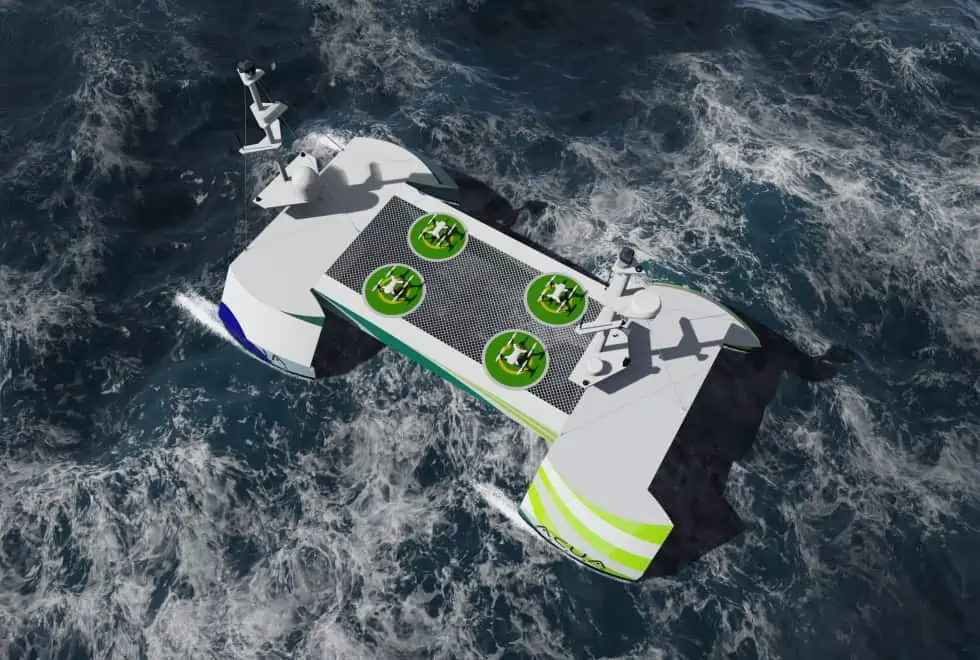
IoT security specialists Microsec and autonomous vessel developer ACUA Ocean have confirmed that the two companies have signed an MOU to develop new solutions for maritime cyber security as part of a collaborative research and development project, funded by Enterprise Singapore and Innovate UK. The project will focus on next-generation IoT solutions with a specific focus on multi asset swarm deployments.
According to Forbes, cyberattacks on maritime systems have increased 900% in approximately the past three years alone. As the maritime industry’s reliance on digital systems and transition towards uncrewed autonomous vessels accelerates, so do cyber-attacks. From the NotPetya ransomware attack on Maersk, to the hacks of the ports of Barcelona and San Diego, cybercriminals are increasingly targeting the maritime industry, with one estimate that a single future cyber attack on a major Asia-Pacific port could cost the global economy up to $100 billion.
The partnership will see MicroSec and ACUA Ocean deliver a world-first advanced cyber solution technology that is resistant to quantum-based cyber attacks. Current post-quantum security solutions are only partially quantum-resistant, or unable to offer security at the device or IoT level, and thus cannot be used to secure connected devices found in autonomous surface ships or aerial drones, or similar.
MicroSec develops lightweight IoT security solutions, including encryption, authentication, and anomaly detection for IoT devices and networks end-to-end. MicroSec solutions are computation, memory, and bandwidth-efficient, making them suitable for platforms where power, bandwidth and latency are constrained.
The project leverages ACUA Ocean’s existing Approval in Principle from Lloyd’s Register on hydrogen control system, bringing a new generation of cyber secure C4 systems for USVs to the market. Together the partners will work to accelerate the commercialisation of autonomous swarms for multi-domain operations, enabling fleets of connected drone ships, subsurface and aerial assets to operate securely on deployment.
Dr. Vishram Mishra, CEO of MicroSec, commented: “Supply chains all over the world took a hit due to the pandemic and now are playing catch up to the demand of the global economy. The maritime industry has taken the brunt of that impact. However, the silver lining is that it has given us an opportunity to rethink supply chain resiliency. And resilient supply chains means finding sustainable solutions.”
“ACUA Ocean is a leading example of the type of innovation required to move traditional industries like maritime towards sustainability. But we cannot ignore the realities of the world, and with innovation and connectivity comes potential threats. Which is why we are excited about our new collaboration with ACUA Ocean. By working together, we will be able to demonstrate not only a more secured vessel, but also facilitate sustainability through cyber resiliency and as a result, introduce the most secured hydrogen-powered marine vessel for commercial use on the planet.”
Dr Puneet Chhabra, CTO of ACUA Ocean, noted: “Cyber security must be at the forefront of autonomous system development. For far too long, the maritime sector has buried its head in the sand when it comes to the intrinsic risks of cyber attacks to vessel operations and onboard system and sensor data. As regulators implement higher criteria for onboard system security and redundancy we will see a rapid consolidation in the market where customers will demand world-class cyber security as standard. Working with Microsec will help us accelerate our delivery of new and innovative C4 systems and builds on the work we’ve already achieved through our ISO27001 accreditation.”
Find suppliers & manufacturers of Uncrewed Marine Vessels >>


















